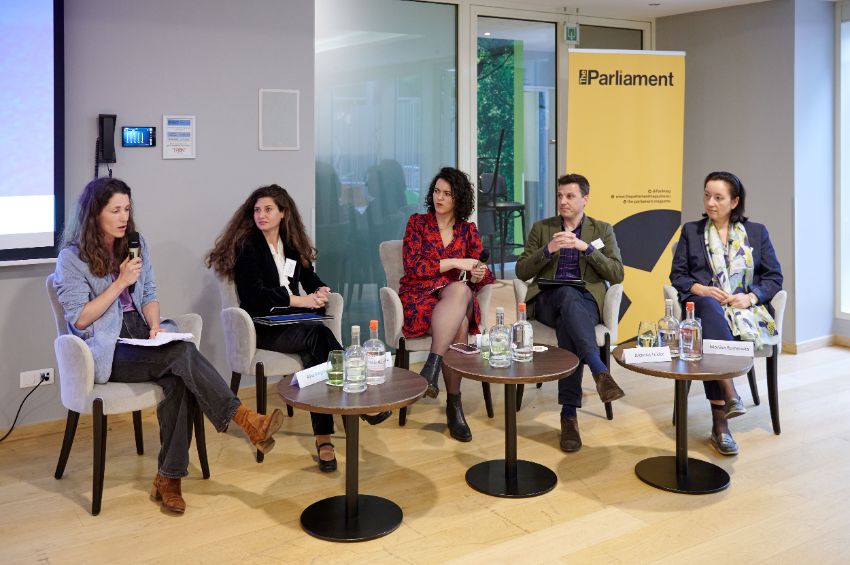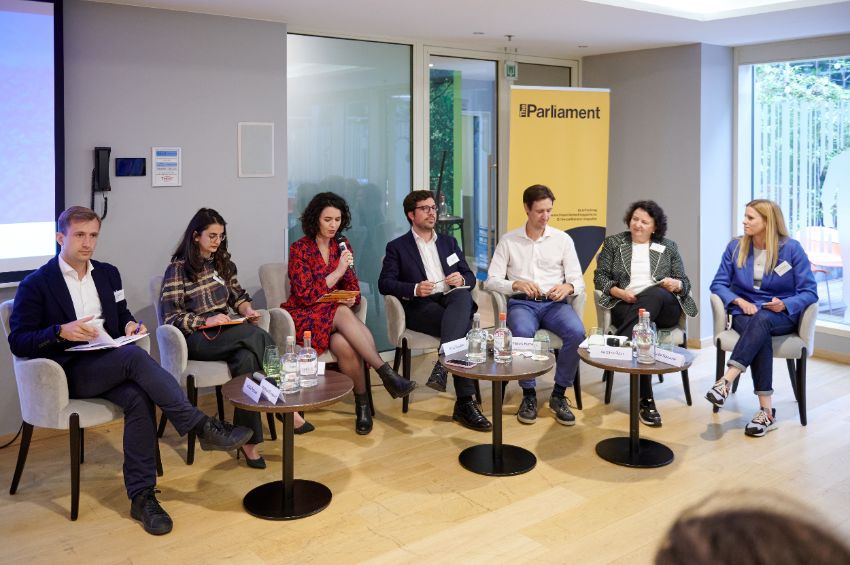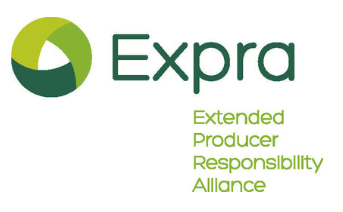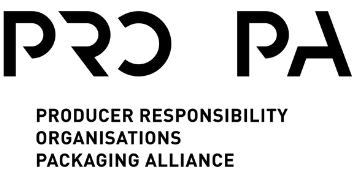When discussing the transition from a linear to a circular economy, envisioning the shift from a straight line to a circle might seem straightforward however in practice, this shift is quite complex. In a circular economy, materials are categorised into technical (non-biodegradable, like plastics and metals) and biological (biodegradable, like wood and cotton). A significant challenge holding up this transition is that current systems often mix these two types of materials, making separation and effective recycling difficult (e.g. the polycotton in the clothing industry).
The Circular Economy Action Plan provides a comprehensive roadmap for promoting circularity throughout product life cycles, from inception to waste management. Beyond the PPWR, the European Commission is reshaping the single market to reduce environmental impact and promote sustainable practices through legislative proposals such as the Taxonomy Regulation, the Ecodesign for Sustainable Products Regulation, and the revision of the Waste Shipments Regulation. In doing so, the Commission is encouraging member states to focus on three fundamental principles: Reduce, Reuse, and Recycle.
Ahead of the European elections, Citeo, the French Producer Responsibility Organisation for the Extended Producer Responsibility for household packaging and graphic papers, a mission-driven organisation established by companies to comply with the legal framework and to minimise the environmental impact of their packaging, released 11 proposals aimed at addressing the economic and environmental challenges faced by European Union countries. These proposals position the circular economy as a crucial tool for reducing the environmental impact of household packaging and paper, whilst also promoting economic sovereignty, industrial policy and competitiveness. Proposals include opening the EU's greenhouse gas emissions trading system, integrating the circular economy into EU trade agreements and defining a binding legislative framework for bio sourced and non-fossil raw materials, which will help to take into account the entire life cycle material so that the environmental impact remains truly positive and prevent loss of biodiversity.
On 15th May, experts from both the private and public sectors gathered to dive into the implementation of the PPWR and took part in an interesting discussion, organised in partnership with Citeo, Expra and PROsPA, about the role of the circular economy in the next European mandate.
 Speakers: Aline Maigret, Head of Policy, Zero Waste Europe; Maria Nikolopoulou, Vice-President for the Section on Agriculture, Rural development and the Environment, European Economic and Social Committee; Nicholas Hodac, Director General, UNESDA; Monika Romenska, Regulatory & Public Affairs Manager, Expra - Moderator: Anna Gumbau, Climate Journalist and Event Moderator
Speakers: Aline Maigret, Head of Policy, Zero Waste Europe; Maria Nikolopoulou, Vice-President for the Section on Agriculture, Rural development and the Environment, European Economic and Social Committee; Nicholas Hodac, Director General, UNESDA; Monika Romenska, Regulatory & Public Affairs Manager, Expra - Moderator: Anna Gumbau, Climate Journalist and Event Moderator
During the first panel, Nicholas Hodac, Director General at UNESDA, highlighted the concerns raised by stakeholders on the feasibility of meeting the PPWR targets by 2030. Many industries believe that these targets cannot be achieved within the given timeframe, emphasising the need for sufficient time to transition towards these goals. Hodac pointed out how the impact assessment process has stirred significant controversy, stressing the importance of a thorough examination of the legislative framework and acknowledging that industries require time and funds to make the necessary investments and adjustments. According to a PwC study, “moving to 10 percent refillable PET as of 2030 in the EU is estimated to cost more than €16 billion”, explained Hodac.
“We need to achieve more harmonisation. Some member states actually have more ambitious targets in place, even preceding the current days” - Aline Maigret, Head of Policy at Zero Waste Europe
Despite the challenges involved, Maria Nikolopoulou, Vice-President for the Section on Agriculture, Rural Development and the Environment at the European Economic and Social Committee, argued that the Commission’s objectives set the EU on the correct path towards circularity. Specific measures and guidelines were adopted to provide necessary aid to fast-track the green transition and to speed up and simplify aid granting. The Commission consulted Member States, amended the Temporary State Aid Crisis and Transition Framework and revised the General Block Exemption Regulation in light of the Green Deal. It will also facilitate the use of existing EU funds for financing clean tech innovation, manufacturing, and deployment, with a focus on REPowerEU, InvestEU, and the Innovation Fund. Programmes like Horizon Europe, which funds projects that contribute to the Green Deal goals while boosting the EU’s competitiveness and growth with a budget of 95.5 billion, and the Just Transition Mechanism (JTM), that provides financial support to regions and industries most affected by the transition to a green economy, will ensure that the transition is fair and inclusive. Aline Maigret, Head of Policy at Zero Waste Europe added that effective harmonisation is essential to ensure all member states can meet the PPWR targets. She noted that countries like France and Germany have set more ambitious targets, which highlights the discrepancies in implementation and ambition levels across the EU.
 Speakers: Mathias Kirkegaard, Environment attaché at the Permanent Representation of Denmark to the EU; Federica Dolce, Environmental Affairs Manager, Food Drink Europe; Luis Planas Herrera, Policy Assistant to the Director General for Environment (DG ENV), European Commission; Antoine Oger, Research Director, Institute for European Environmental Policy; Lucie Rousselle, Candidate for the European elections in Belgium, MR/Renew Europe - Moderator: Anna Gumbau, Climate Journalist and Event Moderator
Speakers: Mathias Kirkegaard, Environment attaché at the Permanent Representation of Denmark to the EU; Federica Dolce, Environmental Affairs Manager, Food Drink Europe; Luis Planas Herrera, Policy Assistant to the Director General for Environment (DG ENV), European Commission; Antoine Oger, Research Director, Institute for European Environmental Policy; Lucie Rousselle, Candidate for the European elections in Belgium, MR/Renew Europe - Moderator: Anna Gumbau, Climate Journalist and Event Moderator
The second panel focused on the role of the circular economy in the next European mandate. Antoine Oger, Research Director, Institute for European Environmental Policy, emphasised the importance of the EU's role in the circular economy. Oger did caution against overpromising, highlighting the EU's strength in setting targets and fostering investment-friendly environments. The need for clear recognition and classification criteria for circular goods and services was stressed, especially in international trade. Without this clarity, cross-border markets and exchanges face significant challenges.
“We must ensure a competitive framework that supports the development and growth of the circular economy. This involves creating conditions that enable the market to thrive and ensuring that regulations are not just guidelines but actionable mandates that drive real progress.” - Luis Planas Herrera, Policy Assistant to the Director General for Environment (DG ENV), European Commission
Lucie Rousselle, a candidate for Belgian party MR in the European elections, emphasised the dual benefits of the circular economy for competitiveness and climate neutrality, highlighting its appeal to both citizens and businesses. Rousselle suggested that there was a need to increase economic incentives through funding and investments to support businesses in this sector. She also advocated for the “continuation of efforts to ensure a level playing field” and “extend the scope of the carbon neutrality mechanism in terms of consumer goods”, to make sure that importing carbon intensive goods won’t be convenient and “give the consumers the opportunity to get goods born from circular economic models”.
“Circular economy is obviously an extremely good tool for strategic autonomy, providing resilience against external shocks, and offering a competitive advantage with economic potential for large-scale circular business models, while simultaneously supporting the achievement of our climate and environmental objectives” - Antoine Oger, Research Director, Institute for European Environmental Policy
How can we ensure that the green agenda remains a top priority for the next mandate? Luis Planas Herrera, Policy Assistant to the Director General for Environment (DG ENV) at the European Commission, raised two pertinent points. First, Planas Herrera argued that a “circular economy is an equal strategic economy and can lead to competitiveness, by making sure that we have an internal market where the industries have the same requirements”. Second, Planas Herrea underlined how the EA (Euro Area) estimated that approximately 60 billion euros' worth of economic assets were lost due to climate-related extremes last year alone. This highlights the dual nature of the issue, with Planes Herrera emphasising that "we cannot afford to remain inactive". From a member-state standpoint, action at a European level is essential as individual states resort to varied approaches to tackle different issues, such as implementing schemes like eCR (Electronic Compliance Radar) and fast fashion taxation. This diversity in approaches adds unnecessary costs to companies and hinders their ability to adopt circular practices uniformly across different markets. This underscores the urgent need for cohesive and harmonised strategies to address these circular economy challenges.
Read Citeo's 11 proposals for an environmental and sovereign economic model for Europe here.
In partnership with



Sign up to The Parliament's weekly newsletter
Every Friday our editorial team goes behind the headlines to offer insight and analysis on the key stories driving the EU agenda. Subscribe for free here.